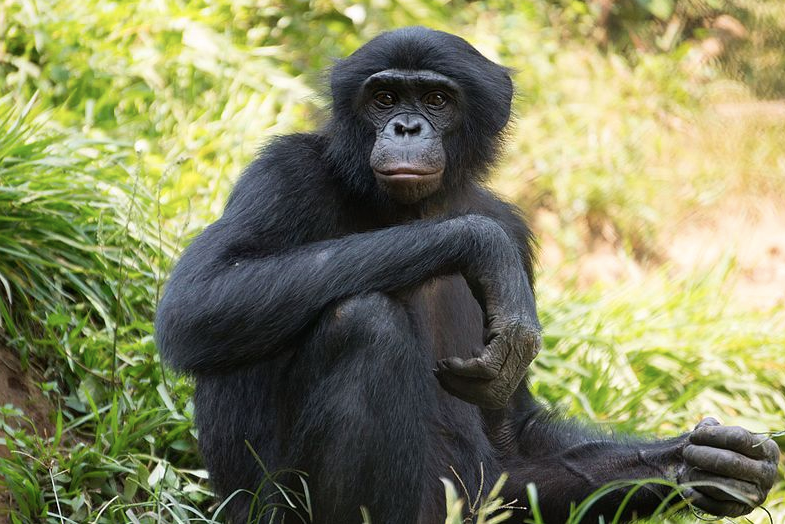# Bonobos: Our Compassionate Relatives and Their Altruistic Nature
Written on
Chapter 1: Understanding Bonobos
Bonobos, closely related to chimpanzees, share nearly 99% of our DNA. However, while chimps are known for their competitive, male-dominated societies, bonobos thrive in peaceful, female-led communities. Recent research has revealed that bonobos are remarkably empathetic beings, often extending kindness to strangers without any prompt.
> “Humans are thought to possess a unique proclivity to share with others — including strangers.”
In 2013, Jingzhi Tan, a postdoctoral researcher at Duke University, published groundbreaking findings demonstrating that bonobos willingly share food with unfamiliar individuals. This study challenged the prevailing notion that human generosity towards strangers is a unique trait.

Section 1.1: Experiments on Altruism
Since Tan's initial study, a series of experiments have been conducted at the Lola ya Bonobo sanctuary in the Democratic Republic of Congo. In one notable 2017 study, researchers set up a scenario where a bonobo could release an apple for a stranger in an adjacent room. The results were astounding: bonobos were four times more likely to help an unfamiliar bonobo than when the room was empty.
Subsection 1.1.1: The Yawning Experiment
In the same research paper, the scientists explored the contagious nature of yawning among bonobos. They found that bonobos yawned equally in response to videos of both familiar and unfamiliar bonobos yawning, showcasing their ability to empathize with others.
Chapter 2: Recent Insights on Bonobo Empathy
In January 2023, further research published in the journal Emotions revealed that bonobos are not just kind; they also show a heightened interest in the emotions of strangers compared to those they know. This study, conducted by Evy van Berlo, involved bonobos reacting to photos of emotional expressions.
The video title is "Bonobo Apes Express Empathy, Willingly Help Strangers | Nat Geo Wild - YouTube." It highlights the remarkable empathy and altruistic behaviors exhibited by bonobos, showcasing their unique social dynamics.
Section 2.1: Comparing Emotional Responses
Van Berlo's experiment demonstrated that both humans and bonobos react more quickly to emotional images. However, an interesting divergence emerged: while humans focused on familiar individuals, bonobos were more attentive to the emotional expressions of strangers.
Possible Reasons Behind Bonobo Generosity
Could there be a strategic reason for the bonobos' kindness towards strangers? Tan suggests that building relationships with strangers could lead to future alliances. Meanwhile, van Berlo posits that the stable ecological environment of the Congo allows bonobos to engage in peaceful interactions, fostering cooperation rather than competition.
Conclusion: A Shift in Perspective
Regardless of the underlying reasons, the findings suggest that bonobos are fundamentally xenophilic, showing an attraction to the unfamiliar. This is starkly contrasted by chimpanzees, who often exhibit xenophobia.
While we may appear distinct from both bonobos and chimpanzees, socially, we embody characteristics of both. This duality may explain our ongoing struggle to balance peace and conflict in our societies.